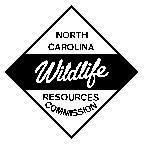
The “On the Road, On the Water, Don’t Drink and Drive” safety campaign is back. After a successful inaugural effort in 2011, the multi-agency campaign will resume this summer.
A news conference will be held 11 a.m., May 22, at Upper Barton Creek Boating Access Area on Falls Lake, near Raleigh, to kick off the campaign.
North Carolina sets the same limits for vessels and vehicles: Any driver with a blood-alcohol concentration that meets or exceeds .08 or is appreciably impaired by alcohol and/or drugs is subject to arrest.
But perhaps more than anything, the safety campaign is about education.
“We can’t arrest our way out of the problem of impaired driving. This is a high visibility campaign, being very much about awareness and personal responsibility,” said Lt. Todd Radabaugh with the N.C. Wildlife Resources Commission. “We want drivers to understand and accept the responsibility of safety — on the road and on the water — for themselves and others.”
The “On the Road, On the Water, Don’t Drink and Drive” campaign combines law enforcement resources to ensure that everyone can travel safely on highways and waterways during summer. Officers will conduct sobriety checkpoints and special saturation patrols during busy holiday periods, combined with special messaging strategies to increase awareness of the dangerous consequences of impaired driving. Leading the campaign are the N.C. Wildlife Resources Commission, responsible for enforcing boating regulations, and the State Highway Patrol, providing for highway safety.
Joining the safety campaign are the Alcohol Law Enforcement division, local police and sheriff’s departments and Forensic Tests for Alcohol branch, which is providing six mobile breath-alcohol testing units. Each mobile unit is equipped with alcohol screening devices, computers and communication work stations, as well as a magistrate office and other necessary equipment and supplies for processing impaired suspects.
The state chapter of Mothers Against Drunk Driving is promoting and supporting the safety campaign through additional outreach and education.
There are more than 200 sworn, full-time wildlife officers across the state who patrol 5,000 square miles of inland streams, rivers, lakes and coastal waterways and instruct certified boating safety education courses. The public can assist them by reporting boating violations to 1-800-662-7137.
 Your Privacy Choices
Your Privacy Choices
 The
The